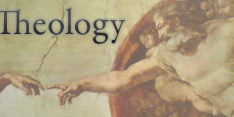
What is Analytic Theology
By Luke Stamps
Theological movements come and go. They wax and wane. This is as true in popular contexts as it is in academic contexts. For example, just when the emerging/emergent church was starting to show up on some people’s radars, others were claiming that the movement was already in decline or perhaps altogether dead (though recent events show its enduring influence). Examples in academic circles could also be given. Take the mid-20th century “biblical theology movement” or the 1960s ”death of God” movement, to pick just two famous examples. Theological movements–perhaps especially in our lightening-fast information age–are often just a flash in the pan.
But one relatively recent theological movement that appears to have some staying power is the movement known as “analytic theology.” This moniker is fairly new, but the movement underneath it dates back at least three decades ago, when more and more Christian philosophers in the analytic tradition began turning their attention to the articulation of various Christian doctrines. The 2009 book Analytic Theology: New Essays in the Philosophy of Theology, edited by Oliver Crisp and Michael Rea, offers a helpful summary of some of the movement’s main insights as well as its primary challenges.
What exactly is analytic theology? Simply put, analytic theology is philosophical theology in the analytic tradition. By “philosophical theology” I mean philosophical reflection on Christian doctrine. It is more than the philosophy of religion; it is theology—theology that appropriates the tools of philosophy for the understanding and articulation of Christian doctrine. By “analytic tradition” I mean the Anglo-American tradition of analytic philosophy, which is characterized by the rigorous analysis of metaphysical concepts and the valuing of clarity, precision and logical coherence.
A focus on philosophical theology (justifiably) raises red flags for many Christians. History is replete with examples of people who made Christian theology to bend to the prevailing philosophical trends of the day (Hegel’s idealist theology and Bultmann’s existentialist theology immediately come to mind). But philosophy need not be counted a foe to theology. Indeed, there is a long and venerable tradition in Christian theology that sees philosophy as the “hand-maiden” of theology–philosophy as theology’s servant, not its master. As Paul Helm has put it, reason can rightly serve a procedural role (as opposed to a substantive role) in theology. Philosophy can help us clarify concepts and defend the logical coherence of Christian doctrine. It is in this tradition that I think analytic theology belongs (although, it should be noted, there is considerable diversity within the “movement”). In the tradition of Anselm, analytic theology is a “faith seeking understanding” enterprise. We accept Christian doctrine by faith in divine revelation, but we press on toward greater understanding of those doctrines which we believe.
If you want to learn more about analytic theology, this two-part interview with Crisp and Rea over at the Evangelical Philosophical Society blog is a good place to start. Also read Matthew Barrett’s recent book review on the Credo website of Analytic Theology: New Essays in the Philosophy of Theology.
Luke Stamps is a Ph.D. candidate at The Southern Baptist Theological Seminary in systematic theology. Luke is a weekly contributor to the Credo blog and also blogs at Before All Things. Luke is married to Josie, and they have two children, Jack and Claire. Luke is a member of Clifton Baptist Church in Louisville, KY.

